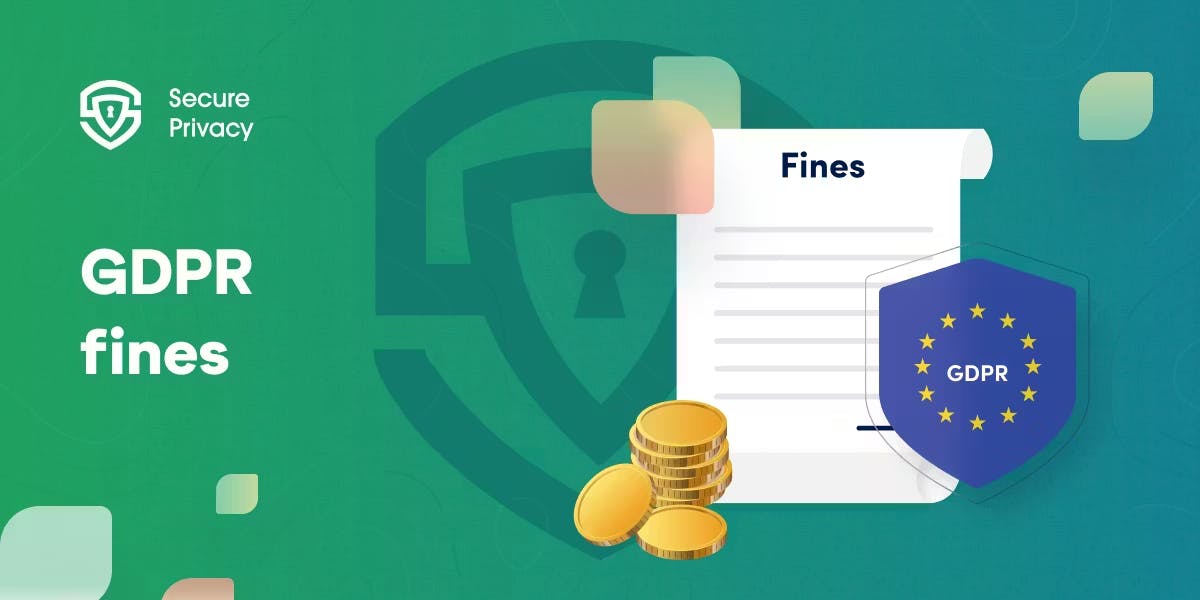Best Practices for Cookie Consent Banners: Design, Compliance, and Engagement
Learn how to create GDPR-compliant cookie consent banners, understand different banner types, and implement best practices to build user trust and avoid penalties.
The increasing emphasis on data privacy laws and regulations like the General Data Protection Regulation (GDPR) has made implementing effective cookie consent banners a legal and ethical necessity. This article offers comprehensive guidance on creating compliant cookie consent banners, enhancing user engagement, and ensuring adherence to privacy regulations. Whether you're a website owner or developer, this guide will help you navigate the best practices for cookie consent to improve transparency and user trust.
What Is a Cookie Consent Banner, and Why Does Your Business Need One?
A cookie consent banner is a notification displayed on your website to inform visitors about your use of cookies and to request their consent for tracking their data. For your business, this is much more than just a legal requirement—it’s an opportunity to demonstrate that you take customer privacy seriously and are committed to transparency. It’s a small, but essential, step in fostering trust and building a relationship with your visitors.
Failing to implement a compliant cookie consent banner can have significant consequences for your business. First and foremost, it can expose you to substantial fines under regulations like GDPR and CCPA. These privacy laws require that you obtain explicit consent before using cookies that track personal data. Without proper consent, you risk legal penalties that can disrupt your operations and damage your financial standing.
Beyond the legal risks, ignoring cookie consent can also harm your reputation. Customers today are more aware than ever about the importance of data privacy, and they expect businesses to respect their rights. When users see a clear, well-designed cookie consent banner on your website, it reassures them that you value their privacy and are being transparent about how their data is collected and used. On the other hand, neglecting this step or using vague language can cause visitors to feel uneasy, undermining their trust in your business.
The Legal Obligations You Must Meet for Cookie Consent
As a business owner, you are legally required to comply with data privacy laws like the General Data Protection Regulation (GDPR), which govern how you collect, store, and process personal data. These laws exist to protect your customers’ privacy and ensure that their personal data is handled responsibly. Specifically, GDPR mandates that you:
- Provide clear information about the use of cookies on your website, including why and how they are used. This includes explaining the purposes of different types of cookies—whether they are for tracking, analytics, or advertising — so that users can make informed decisions.
- Obtain explicit consent before using cookies that track or process personal data. This means that visitors must take a clear, affirmative action to accept your cookie policy — simply browsing your website doesn’t count as consent under GDPR.
- Offer visitors the ability to withdraw consent easily at any time. Users should be able to easily change their cookie preferences or opt-out altogether, which reflects the principle of user control over their data. This flexibility ensures that your business is in line with the right to data portability and erasure that GDPR promotes.
Checklist for Cookie Compliance:
- Display a cookie consent banner prominently on your website.
- Allow users to customize their cookie preferences.
- Regularly review and update your data protection practices.
Different Types of Cookie Consent Banners and How to Choose the Right One
The type of cookie consent banner you choose for your website will depend on several factors, including your target audience, your business model, and the specific privacy laws that apply to your market. Understanding the different types of cookie banners and how they align with legal requirements will help you make the right decision for your business. Below are the most common types of consent banners, along with insights on how to choose the one that best suits your needs.
Explicit Consent Banners
Explicit consent banners are the most stringent option when it comes to GDPR cookie compliance. These banners require users to take a clear, affirmative action to agree to the use of cookies before any cookies are placed on their device. This means the user must actively opt-in, often by clicking a button such as “Accept” or “Agree.”
If your website processes sensitive personal data or operates in regions with strict data protection laws like the EU or the UK, an explicit consent banner is essential. This type of banner ensures you meet the GDPR’s requirement for prior informed consent and helps protect your business from legal risks, fines, and reputational damage. Explicit consent banners also allow users to make an informed choice about which cookies they want to accept, which promotes trust and transparency.
Implied Consent Notices
Implied consent assumes that visitors consent to your cookie usage by simply using your website or continuing to browse. These banners often appear with a simple notification informing users of your cookie policy, and if the user continues using the website, consent is assumed.
While implied consent was once common, it is not GDPR-compliant. GDPR requires explicit consent, meaning that simply continuing to browse does not count as permission to use tracking cookies. Using an implied consent notice can expose your business to potential fines or legal challenges. If your business operates in the EU or handles sensitive personal data, you should avoid this approach.
Granular Consent Banners
Granular consent banners offer users more control by allowing them to choose which types of cookies they want to accept. For example, users can decide whether they want to accept necessary cookies, performance cookies, functional cookies, or marketing cookies. This level of detail aligns well with GDPR’s requirement for transparent data collection practices.
If you want to enhance customer trust and engagement, a granular consent banner is a powerful option. Not only does it comply with GDPR’s requirement for active consent, but it also gives your users the ability to customize their preferences. This approach fosters transparency, allowing customers to make informed choices about the data you collect. If your business operates in a region with privacy laws that emphasize user consent and transparency, granular consent provides a comprehensive solution.
See also: Understanding Consent Management Platforms: Enhancing Data Privacy and Management
How to Decide Which Banner is Right for Your Business
When determining which type of cookie consent banner you need, consider the following factors:
- Your Target Market’s Location: If your business operates in the EU, UK, or other regions with strict data privacy laws like GDPR, it’s important to ensure that your cookie consent banner is compliant with these regulations. Explicit consent or granular consent banners are required to meet GDPR’s legal requirements.
- The Type of Data You Collect: If your business handles sensitive personal data (such as health information, financial data, or personally identifiable information), it’s even more critical to have an explicit or granular consent mechanism in place. Collecting this type of data without proper consent can result in heavy fines and reputational damage.
- Your Business Model and Cookie Usage: If your business relies heavily on advertising or third-party cookies for tracking user behavior, a granular consent banner will give users more control and align with privacy expectations. Customers are becoming increasingly concerned about cookie usage, and giving them the option to customize which cookies they accept can improve their trust in your brand.
A quick decision guide:
- If you operate in the EU or handle sensitive data: Use explicit consent or granular consent banners to stay compliant with GDPR.
- If you don’t need granular control but still need explicit consent: Use an explicit consent banner to ensure that all users provide clear consent before cookies are used.
- If your target audience is global, and you want to build trust: Consider offering a granular consent banner to allow users to select and manage their cookie preferences. This approach is not only compliant with GDPR, but it also promotes transparency and empowers your users.
Do You Need a Consent Management Platform (CMP)?
A Consent Management Platform (CMP) streamlines the process of managing cookie consent and ensures compliance with privacy regulations like GDPR and CCPA. These platforms offer several key features that can benefit your business:
Key features of a CMP:
- Pre-built, Customizable Cookie Banners. Quickly deploy a compliant cookie consent banner that aligns with your site’s branding, saving you time while ensuring legal compliance.
- User Consent Data Tracking. Automatically track and store user consent data, providing you with the necessary documentation for legal compliance.
- Automated Updates for Regulations. CMPs automatically update to reflect changes in privacy laws, ensuring that your consent management remains up-to-date and compliant.
See also: How to Choose a Consent Management Platform (Google-Certified CMP Partner)
When should you invest in a CMP?
- If Your Website Processes Significant Customer Data
If your business collects personal data, a CMP helps manage consent, reducing privacy risks and legal exposure. - If You Operate in Multiple Regions with Different Privacy Laws
CMPs adapt to different privacy laws across regions, ensuring compliance with GDPR, CCPA, and others. - If You Want to Save Time and Reduce Compliance Risks
By automating cookie consent management, a CMP saves you time and minimizes human error, ensuring your business stays compliant.
Investing in a CMP simplifies compliance, reduces risks, and ensures transparency with your customers. If your business processes data, operates internationally, or wants to stay ahead of privacy regulations, a CMP is a smart investment for long-term success.
How Cookie Categories Create Transparency and Improve Customer Trust
Breaking down cookies into categories like necessary, functional, and advertising helps your customers better understand and manage their preferences, while also ensuring that your business complies with privacy regulations. By offering granular control over cookies, you empower users to choose exactly what types of data they want to share, which fosters trust and transparency.
Why This Matters for Your Business:
- Builds Trust and Transparency with Your Customers:
By categorizing cookies, you're giving your users the ability to make informed decisions about their data. This level of transparency shows that you respect their privacy and are committed to providing control over how their data is used. When users feel that they have control over their data, they’re more likely to engage with your website and trust your business. - Ensures Compliance with Privacy Regulations:
GDPR, CCPA, and other data privacy laws require that users provide explicit consent for cookies, particularly for cookies that track their data for advertising or other purposes. By categorizing your cookies, you're offering users a clear choice on which cookies they accept. This practice not only aligns with the regulatory requirement for granular consent but also helps you avoid fines and legal issues related to non-compliance.
Actionable Tip for Your Business:
Use your cookie consent banner to explain each category clearly, including the purpose of each cookie type. For example, you can describe that necessary cookies are essential for website functionality, such as enabling page navigation, while functional cookies improve the user experience by remembering language preferences or login details. Advertising cookies, on the other hand, are used to display targeted ads based on browsing behavior.
Providing this clear information allows users to make an informed decision about their preferences, ensuring that they feel confident and comfortable with the data collection practices on your site. This practice not only improves your compliance with privacy regulations but also shows that you value your customers' privacy and are committed to being transparent with them.
Steps to Achieve GDPR-Compliant Cookie Consent for Your Business
To comply with GDPR and avoid penalties, it's essential to focus on obtaining explicit consent and maintaining transparent, user-friendly practices. Here’s a step-by-step guide to ensure your business stays compliant:
Step-by-Step Guide to GDPR Compliance:
- Create a GDPR-Compliant Cookie Consent Banner
Your banner should clearly explain cookie usage and obtain explicit consent from users before setting non-essential cookies. Avoid pre-checked boxes. - Allow Easy Management or Withdrawal of Consent
Provide users with the option to manage or withdraw consent easily at any time. This ensures compliance and builds trust. - Regularly Audit Your Cookie Usage
Periodically review your cookies and policies to ensure they remain compliant with GDPR and reflect any changes in your practices. - Integrate with Tools like Google Consent Mode
Integrating your banner with tools like Google Consent Mode lets you maintain analytics and marketing performance without violating privacy regulations.
See also: Google Consent Mode and Secure Privacy CMP
Protect Your Business with Secure Privacy CMP
Ensure your website stays fully compliant with privacy regulations like GDPR and build trust with your visitors using Secure Privacy CMP. Our platform makes it easy to manage cookie consent, customize banners, and give users control over their data preferences—all while ensuring you meet the latest privacy laws.
Don't wait—secure your website’s compliance and improve user trust today!
Get Started For Free with the
#1 Cookie Consent Platform.
No credit card required

EU AI Act for CTOs: What Engineering Teams Must Build, Document, and Operationalize
Your product team ships a new AI-powered hiring screening feature. It ranks candidates automatically based on CV data. It is running in production across three enterprise clients in Germany, France, and the Netherlands. Nobody ran a risk classification exercise before launch. There is no technical documentation file. The logging infrastructure captures model outputs but not the decision logic. You have no human override mechanism.

GDPR Fines and Penalties Explained: Calculation, Enforcement Trends, and Risk Mitigation
Your legal team forwards you a letter from a supervisory authority. A data subject complaint has triggered a formal investigation. Your company processed personal data without a valid lawful basis six months ago — a decision made by a product manager who didn't loop in privacy counsel. Now you're looking at a potential Tier 2 fine, which means up to €20 million or 4 percent of your annual global turnover, whichever is greater. You have thirty days to respond.
- GDPR

Privacy Governance for Financial Services: An Operational Framework for Banks and Fintech
Your compliance team has documented your GDPR obligations. But who monitors whether those obligations are being met on Tuesday afternoon when a new vendor API goes live?
- Privacy Governance
- Fintech

